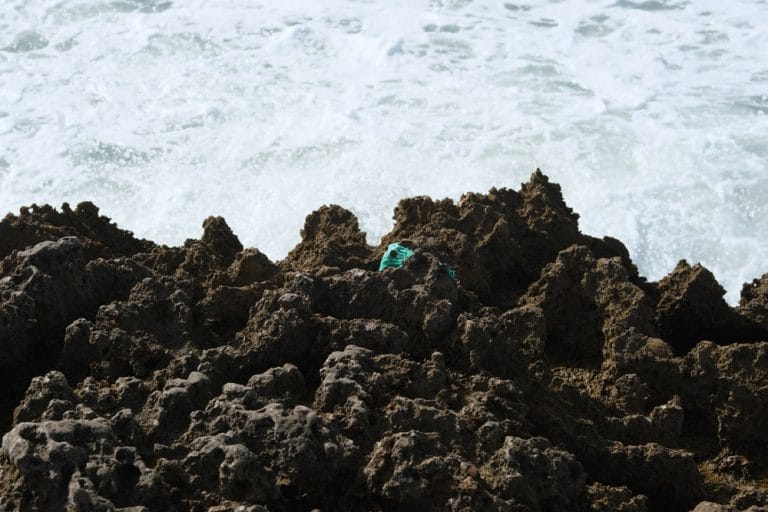The ‘anti-Greta’ Naomi Seibt uses influencer marketing strategy to promote her climate sceptic disinformation
Swedish climate activist Greta Thunberg has inspired a generation of youths to step up their game in the fight to preserve our planet. She also acquired her fair share of enemies, the most prominent being a girl not much older than Thunberg who is actively trying to slow down the climate movement.
Meet Naomi Seibt, or the ‘anti-Greta’ as she’s often dubbed. Seibt is a 19-year-old German YouTube personality who became the darling and paid spokesperson of the conservative movement to promote climate scepticism. A self-described “climate realist”, Seibt is of the opinion that the heating of the planet is far less severe than the mainstream scientific consensus claims it to be and that human activities are not the driving force behind the changing climate.
Over the past couple of months, Seibt has become increasingly ubiquitous among conservative circles around the world, and while paying too much attention to her risks amplifying her campaign, it is important to understand the factors at play behind her notoriety and explore the cultural and political issues her presence on the scene underscores.
A native of Münster in western Germany, Seibt came from a conservative-leaning background. Her mom, who is a lawyer, represented members of the far-right Alternative for Germany (AfD) party, and it was the family’s connection to AfD that helped Seibt gain attention. After Seibt’s essay was published by the ‘anti-Islamisation’ blog Philosophia Perennis in 2017, the teenager made her Youtube debut in 2019, reading out bits of a poem she submitted to a contest organised by the AfD.
Seibt’s rising popularity on YouTube and Twitter had attracted the attention of the Chicago-based Heartland Institute—a conservative think tank that ranks among the world’s most aggressive promoters of climate scepticism. Heartland Institute is reportedly paying Seibt a monthly salary of nearly €1,900 in order for her to post content on her platform denouncing climate science.
In one of her sponsored YouTube videos, Seibt states that “We are currently being force-fed a very dystopian agenda of climate alarmism that tells us that we as humans are destroying the planet. And that the young people, especially, have no future, that the animals are dying, that we are ruining nature,” an ‘agenda’ she views as “despicably anti-human.” In another video, Seibt claimed that “Science is entirely based on intellectual humility and it is important that we keep questioning the narrative that is out there instead of promoting it, and these days climate change science really isn’t science at all.”
In addition to funnelling money into Seibt’s online platforms, Heartland Institute is also booking the young climate sceptic some serious gigs around the world. In December of last year, Seibt spoke at a Heartland Institute climate conference in Madrid, just as Thunberg addressed the UN COP25 global warming summit a few miles away. Last month, Seibt was invited to speak at the Conservative Political Action Conference (CPAC), which was headlined by US President Donald Trump and Vice President Mike Pence.
And just last week, Seibt appeared on Australian Sky News, stating that “I don’t like the term climate denier, because I don’t deny that it’s warming… of course CO2 is a greenhouse gas so it does contribute to some warming, but I believe that the effect is absolutely insignificant, and on top of that we have gained many benefits not only from using cheap and reliable energy sources efficiently, like fossil fuels but also from warming, for example, better crop yields and we can feed the population because it’s been getting warmer.”
Seibt’s claims are not supported by scientific evidence. In fact, the catastrophic implications of human-induced activities on the environment have become the consensus among the world’s top scientists, and are already being felt across the globe. And yet, distortions like the ones made by Seibt continue to find an audience in right-wing circles, primarily due to the politicisation of the issue by the fossil fuel industry. Starting in the 1990s, fossil fuel giants embarked on an expansive campaign to debunk climate science, and have since been funnelling enormous amounts of money into conservative media outlets and the pockets of right-wing politicians in order to portray the climate crisis as a partisan issue.
But we’d be remiss if we ignored another important aspect of Seibt’s success—her function as a social media ‘influencer’. By buying into a trend of paying individuals to promote brands on their online platforms simply because they have a following, we inevitably legitimise the placing of profit over substance. Seibt practically fulfils the same role as the influencer who’s trying to sell you beauty products on their story—neither takes the time to actually check the science behind the brand they’re advertising. Our blind permissiveness when it comes to the promotion of branded content on social media gives companies free rein to capitalise on our naivety and embed their products—be it granola or fossil fuels—in our feeds and minds.
Seibt is, fundamentally, a prop. While she certainly is passionate about conservative ideals, she is both a victim and an agent of anti-environmental propaganda motivated by nothing but greed. It seems that her meteoric ascent to public attention didn’t result from genuine, widespread excitement around her ideology, but rather from the well-funded backing of far-right lobbyists searching for a youthful gen Zer to promote their agenda. It is probable that Seibt will fade into obscurity, but let us not ignore the conditions and circumstance that contributed to her rise as the anti-Greta.





